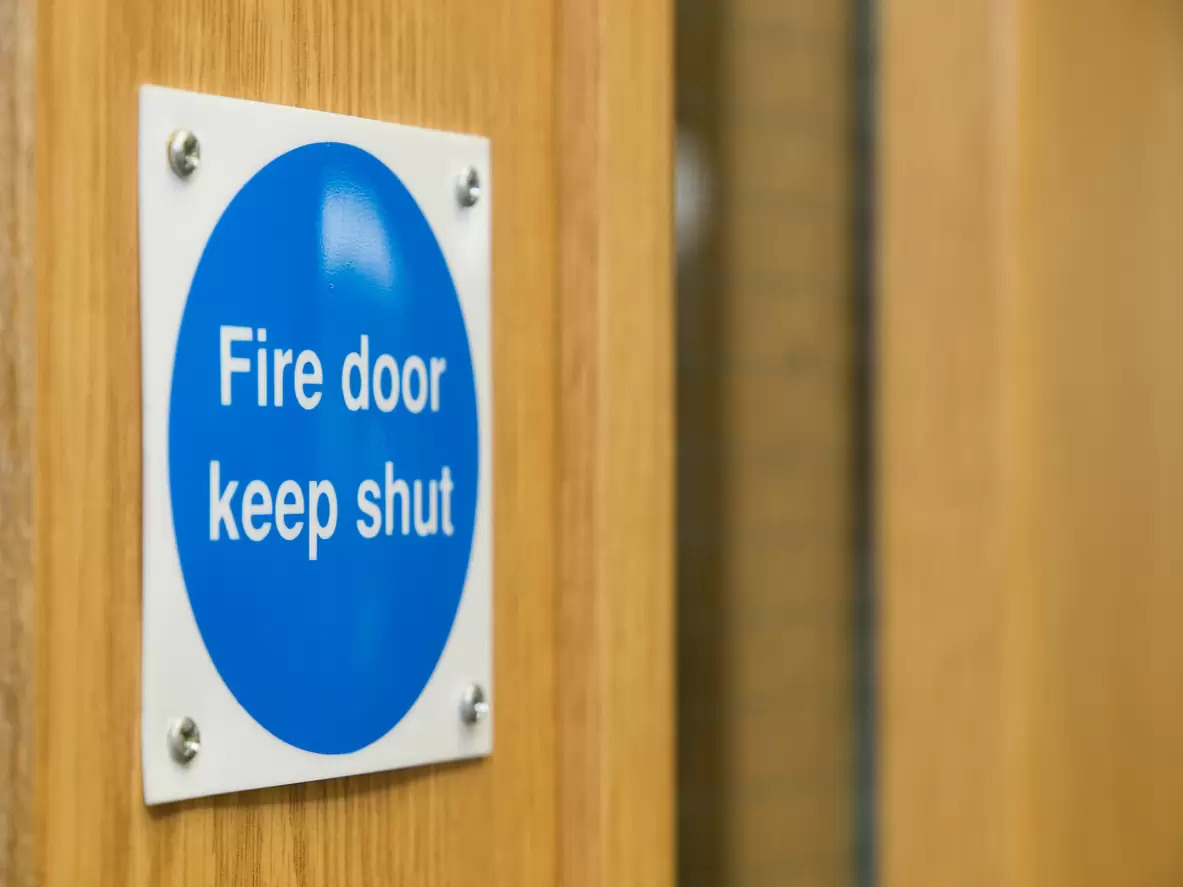Do Fire Doors Need To Be Self Closing?
Fire doors are one of the most efficient ways to protect and evacuate a building in an emergency. They are a legal requirement in all non-domestic properties, multi-storey flats and houses of multiple occupancy. You may have noticed most fire doors immediately swing shut after use; this means the door is fitted with a self-closing device. But how do they work and does your property need one? The team at Surrey Tech Services will be giving you all the answers in this month’s article.

How Do Self-Closing Doors Work?
Fire doors are a key part of a building’s passive protection measures. Constructed from fire-resistant materials, fire doors will withstand a blaze long enough for you to escape. Self-closing fire doors usually consist of metal arms attached above the door and the door frame, allowing it to swing shut and stay sealed.
Often, people use wedges or door stops to prop open fire entrances in high traffic areas; this is actually prohibited as it voids the self-closing mechanism. This problem can be tackled by fitting specialist doors, which operate using electromagnets. They allow the door to remain open to increase foot flow, but automatically shut when a fire alarm sounds.
Why Are Fire Doors Self Closing?

In an emergency situation, circumstances can become chaotic very quickly. Evacuating residents may not necessarily think to pull doors shut behind them. Self-closing fire doors negate this stress and form an effective barrier against flames, protecting escape routes. They are particularly effective in facilities that house elderly people or those with mobility issues, such as care homes. Having a self-closing fire door means that these people have extra time to escape, or the door can protect a fire-safe compartment where they can wait for emergency services. There are other benefits too; as fire doors are in such regular use, self–closing devices help to reduce wear and tear.
Self Closing Fire Door Legal Requirements
The Regulatory Reform (Fire Safety) Order 2005 provides an important fire safety framework for all non-domestic properties. It outlines the responsibility for the landlord, owner or building manager to provide suitable fire doors. All of these must be self closing, with the only exception being doors that lead to locked cupboards or service ducts. In the aftermath of the Grenfell Tower fire, stricter fire safety regulations have been established. As of January 2023, multi-occupied residential buildings measuring over 11 metres must now have quarterly checks on fire doors and their self-closing devices. The new regulations specifically mentioning self-closing devices shows how vital they are; having a working device could mean the difference between life and death in a fire. It is vital to have regular inspections of all fire doors to ensure they are obeying regulations.
In private dwellings, self-closing fire doors are only required if you have an integral garage door, however, you should consider how installing self-closing fire doors would benefit your property.
It’s important to have the correct internal and external fire doors to suit your premises. If unsure, you should contact a fire safety specialist to ensure your site is up to standard. Surrey Tech services are your local, approved contractors and have been operating across Surrey, London and the Home Counties since 2014. We have an expert team of BAFE-accredited and NICEIC-approved engineers ready to help make your property as safe as it can be.
If you would like to book an installation, or simply just talk through your options with an expert installer, contact us today.
